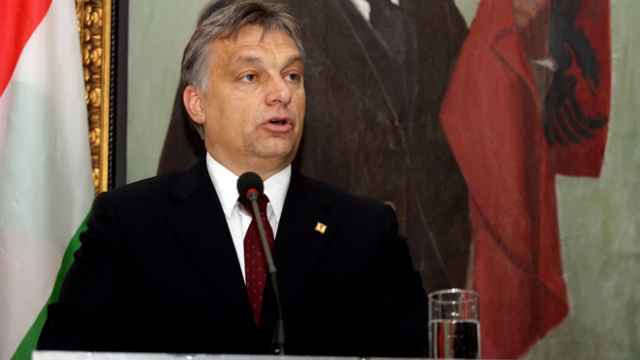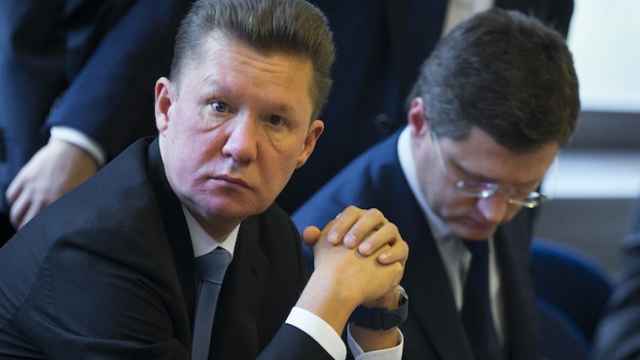The United States is mounting a diplomatic offensive to stop Hungary selling a stake in a Croatian energy firm to Russia, part of what Western powers see as Budapest's dangerous drift into Moscow's orbit.
The U.S. government has already taken the highly unusual step of blacklisting six people with ties to the government in Hungary, a NATO ally and European Union member, from entering the United States, accusing them of involvement in corruption.
U.S. officials say that demarche was the result of growing exasperation with Hungarian Prime Minister Viktor Orban, who has pushed judges into retirement, imposed heavy levies on foreign banks, and this week sparked huge protests with a proposal to tax Internet use.
But Washington is particularly preoccupied about a growing closeness between Hungary and the Kremlin over energy that could undermine Western attempts to isolate President Vladimir Putin over his intervention in Ukraine.
Since September, Hungary has stopped pumping natural gas to Ukraine, effectively pulling out of an EU-backed effort to support Kiev in the face of a Russian energy blockade, and it has renewed a commitment to build a Kremlin-backed pipeline for Russian gas, South Stream, that Washington and Brussels oppose.
U.S. officials are now worried that Hungarian energy firm MOL will sell its 49 percent stake in INA, Croatia's biggest energy company, to a Russian firm, possibly state-owned Gazprom. The Hungarian state has a 24.7 percent stake in MOL.
A State Department official responsible for energy security asked a U.S. senator who was visiting Europe to make a detour to Croatia last weekend to lobby the government there on the issue.
The State Department official, Amos J. Hochstein, also met Hungarian Foreign Minister Peter Szijjarto in Washington earlier this month. A State Department official said they had a "productive meeting" talking about MOL's stake, South Stream, and Hungarian gas deliveries to Ukraine, among other issues.
Western diplomats in the region have confirmed the United States is worried about a possible sale to Gazprom, a firm they describe as a tool of Kremlin policy.
A Gazprom takeover would give the Russian company a strategic foothold inside the European Union, which is already its biggest customer for natural gas.
Chris Murphy, the U.S. Senator who lobbied Croatia's government at Washington's request, said Gazprom has made no secret it would like to buy control of INA.
"We thought it would be a good idea for me to stop by and see the prime minister and president to reiterate the importance of this issue," Murphy said of his trip to Zagreb.
A buyer of MOL's 49 percent stake could also acquire some of the roughly 5 percent of INA shares traded on the Zagreb bourse to gain a full majority in the Croatian company.
A Gazprom source said there had been a discussion in March involving Croatia, Gazprom oil unit Gazprom Neft, and Russian state-owned oil firm Rosneft, but that since then there had been no developments.
Hungary's MOL, which is in a dispute with Croatia over its stake in INA, said in a statement that "selling the stake in INA is a valid option." It said that it would not disclose details about potential buyers, as a matter of principle.
"Illiberal State"
Hungary's drift into the pro-Kremlin camp has accelerated in the past few months, according to Western diplomats.
Orban has clashed repeatedly with Brussels over his policies and has for several years been pursuing what he calls an "eastern opening": a drive to build closer ties with Russia and countries in Asia.
In a speech earlier this year, Orban said he wanted to build an "illiberal state" that would still have freedoms but would put national values above Western-style liberal ideology.
Hungary, along with Poland and Slovakia, was one of three EU countries that had been pumping natural gas to Ukraine to partly replace shipments from Russia that were cut off in June.
But Hungary shut its supplies to Ukraine down in September, just three days after a visit to Budapest by Gazprom chief executive Alexei Miller, who was received by Orban.
At the time, Hungary was looking to increase gas imports so it could fill up its storage reservoirs before winter. Two days after it cut off shipments to Ukraine, the volume of Russian gas reaching Hungary shot up to 24.44 million cubic meters per day, according to data from Hungarian pipeline operator FGSZ, a 56 percent increase over the day Miller and Orban met.
In Kiev, the switch-off of Hungarian gas for Ukraine was interpreted as evidence that Russia had successfully exerted pressure on Hungary. Ukrainian gas firm Naftogaz, in a statement, complained about Russian "energy blackmail."
Hungary's actions differed from those of its neighbor Slovakia, which kept up deliveries to Ukraine despite having its own supplies reduced.
The Gazprom source denied the company had applied pressure on Hungary to stop pumping gas to Ukraine. But the source said: "When Miller visited Hungary, it became more cautious, unlike Slovakia."
Russia itself agreed on Thursday to restart gas deliveries to Ukraine after resolving a pricing dispute.
A Message from The Moscow Times:
Dear readers,
We are facing unprecedented challenges. Russia's Prosecutor General's Office has designated The Moscow Times as an "undesirable" organization, criminalizing our work and putting our staff at risk of prosecution. This follows our earlier unjust labeling as a "foreign agent."
These actions are direct attempts to silence independent journalism in Russia. The authorities claim our work "discredits the decisions of the Russian leadership." We see things differently: we strive to provide accurate, unbiased reporting on Russia.
We, the journalists of The Moscow Times, refuse to be silenced. But to continue our work, we need your help.
Your support, no matter how small, makes a world of difference. If you can, please support us monthly starting from just $2. It's quick to set up, and every contribution makes a significant impact.
By supporting The Moscow Times, you're defending open, independent journalism in the face of repression. Thank you for standing with us.
Remind me later.






